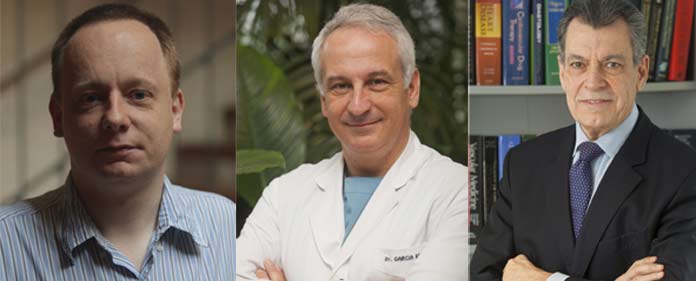Researchers from the University of Navarra participate in the development of a virtual heart that can be adapted to each patient.
Coordinated by the Polytechnic University of Valencia, they have created the first Spanish network research in Cardiac Computational Modeling.

PHOTO: Manuel Castells
A group of researchers from the School of Sciences of the University of Navarra, the research center Médica Aplicada (CIMA) and the Clínica Universidad de Navarra participate in the first Spanish network working on the development of a virtual heart - a cardiac computational model - that can be adapted to each patient and facilitate, in each case, the design of more effective and safer personalized therapies.
This new network (V-Heart SN) is coordinated by the Universidad Politécnica de Valencia and formed by nine universities and centers of research: Universitat Politècnica de València, Universidad de Navarra, Universitat de València, Universitat Politècnica de Catalunya, Basque Center for Applied Mathematics, International Center For Numerical Methods in Engineering, Universitat Pompeu Fabra, Barcelona Supercomputing Center and Universidad de Zaragoza. In addition, the network has the partnership of the main hospitals and companies of reference letter national.
Its members are experts in electrophysiology, biomechanics, numerical methods and high-performance computing, with the goal to simulate the functioning of the heart on computers and anticipate the results of different treatments.
As explained by Jean Bragard, professor at department of Physics and Applied Mathematics of the University of Navarra, and member of this team, "this network aims to promote the research in translational medicine -from basic science to advances in personalized treatments-, and to integrate the tools of translational medicine and personalized medicine, an essential condition for maintaining a first-rate health service in Spain".
Also participating in the network are Dr. Javier Díez, director of the Cardiovascular Diseases Program of the research center Applied Medicine (CIMA) of the University of Navarra, and Dr. Ignacio G. Bolao, director of the department of Cardiology and Cardiac Surgery of the Clínica Universidad de Navarra.
A model for a better understanding of heart diseaseThe Polytechnic University of Valencia also adds that the development of this computational model of the heart will help to better understand, for example, the mechanisms that generate and maintain cardiac arrhythmias; it will allow the application of therapies -such as ablation, cardiac resynchronization, defibrillation or the placement of a pacemaker-; and to predict the efficiency of drugs and their cariotoxicity.
These virtual heart models can be used in daily clinical practice, through the development of tools adapted to the final Username and the medical professional.
The Spanish network of research in Cardiac Computational Modeling will also work to seek solutions to new challenges in the clinical research in the cardiovascular area and to position itself as reference letter, both nationally and internationally, in cardiac modeling.




